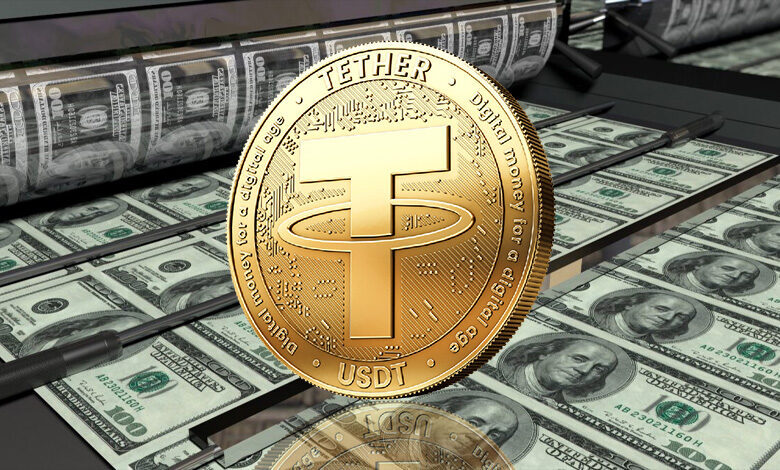
As the U.S. Congress continues to debate stablecoin regulations, Tether, the world’s largest stablecoin issuer, has made it clear that it is not overly concerned about the impact of new laws on its flagship stablecoin, USDT. In fact, Tether CEO Paolo Ardoino says that Tether has no immediate issues with potential bans or restrictions in the U.S., even as the country’s lawmakers discuss laws that could significantly affect foreign stablecoin issuers.
Ardoino, in a recent interview with Decrypt, revealed that while Tether’s USDT might face regulatory hurdles in the U.S., the company is already exploring solutions. One such solution could involve the creation of a new U.S.-domiciled stablecoin designed to comply with emerging American stablecoin regulations. According to Ardoino, this new product would serve a distinct purpose within the U.S. market, while Tether’s flagship stablecoin remains focused on the emerging markets where it has gained significant traction.
“We believe that our main stablecoin is perfected for emerging markets, but we can craft a payment stablecoin that works for the U.S.,” Ardoino explained, underscoring the need for two distinct products catering to different markets.
Stablecoins, which are typically pegged to the U.S. dollar, have become the most traded digital assets in the cryptocurrency market. They are essential tools for traders, providing a stable value for transactions and enabling users to enter and exit positions without dealing directly with fiat currencies. In the U.S., however, legislators have raised concerns about the potential risks associated with foreign stablecoin issuers, especially regarding anti-money laundering (AML) and terrorism financing regulations.
Two significant pieces of legislation currently making their way through Congress, the STABLE Act in the House and the GENIUS Act in the Senate, have drawn attention to the issue. Both bills include provisions that would require foreign issuers like Tether to comply with strict anti-money laundering laws, including the Bank Secrecy Act. These requirements have raised concerns within the industry, with some critics suggesting that such regulations could force Tether to pull out of the U.S. market entirely.
Tether, however, has maintained that it is in full compliance with relevant regulations and law enforcement cooperation, emphasizing its commitment to transparency. Ardoino also noted that the company is in discussions with “Big Four” accounting firms about conducting a full audit, although he acknowledged that these firms have been cautious due to the novel nature of the stablecoin market.
Despite speculation that Tether might exit the U.S. if forced to comply with stringent regulations, Ardoino dismissed such claims, describing them as the “smell of desperation” from Tether’s competitors who had expected the company to avoid the U.S. market. “Here I am,” Ardoino quipped, referencing his ongoing efforts to engage with the U.S. market.
Despite his confidence, Ardoino does not appear eager to make the necessary adjustments for USDT to be issued freely in the U.S. Instead, he remains focused on global markets, particularly emerging economies where USDT has proven to be a key player. Ardoino expressed optimism that USDT would continue to be listed on U.S. secondary markets, as the legislation being debated in Congress does not seem to directly address non-custodial decentralized finance (DeFi) exchanges where USDT is widely traded.
In fact, the Senate’s version of the bill would only restrict non-compliant stablecoins from being offered directly to American users, while the House’s version goes further, banning custodial exchanges like Coinbase from trading such tokens two years after the law is enacted. Notably, both bills leave open the possibility of continued trading of USDT on decentralized exchanges, which are outside the scope of traditional custodial regulations.
Tether’s global strategy is also being shaped by changes in Europe, where new stablecoin regulations have already impacted the company’s operations. Earlier this year, Binance delisted USDT from its European platforms due to non-compliance with the European Union’s updated stablecoin regulations. In response, Tether has begun investing in European companies developing compliant dollar- and euro-backed stablecoins, aligning itself with the EU’s regulatory framework.
Despite these challenges, Ardoino envisions a future where USDT may no longer be a dominant player in either the U.S. or Europe, but will continue to thrive in emerging markets where its value proposition remains strong.
As the stablecoin landscape evolves, Tether’s ability to adapt and innovate will be critical to its continued success in a rapidly changing regulatory environment. While the U.S. regulatory outlook remains uncertain, Tether’s strategy seems clear: focus on what has worked and expand into new markets with tailored solutions.




